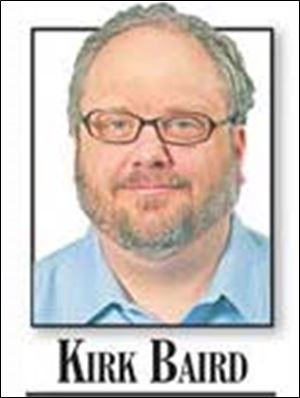
CULTURE SHOCK
Doc asks how much ‘Inequality’ is enough?
2/14/2014
The depressed state of our economy has been of paramount concern to everyone for years — not just in left-leaning documentaries.
It just doesn’t always seem that way.
2011’s Best Documentary Oscar winner Inside Job, a pungent expose of the failed mechanisms that led to 2008’s economic meltdown and those who helped drive the collapse only to benefit from it, is perhaps the best known of this lot. Others include 2012’s The Queen of Versailles, 2011’s Unraveled, 2010’s Chasing Madoff, and 2009’s Capitalism: A Love Story.
And now there’s Inequality for All, a 2013 documentary that addresses the escalating inequality in the United States between the super wealthy and everyone else.
With Robert Reich, one-term Secretary of Labor under President Bill Clinton, frequent author, and now a professor at University of California, Berkeley, as Inequality for All’s mouthpiece and star, the film is thankfully absent conspiratorial chatter, though it predictably peers at the crisis through a liberal lens.
Inequality for All is showing for free on Thursday as part of 150 screenings scheduled simultaneously nationwide: 5 p.m. at the University of Toledo Scott Park Campus, 225 Nebraska Ave., and 7 p.m. at the Audio Visual Classroom Center (adjoining Library) Room AVCC 125-128 at Owens Community College, 30335 Oregon Rd. in Perrysburg. Reich will be available via a nationwide simulcast to audiences following the community screenings.
The essence of Inequality for All is the shrinking consumer strength and financial stability of the once-thriving middle class — the causes and outcomes, as well as ways to reverse the trend — and Reich has some eye-opening numbers to back up his assertions of just how bad things are for many of us.
In 1978, he says, a typical male worker made about $48,000, when adjusted for inflation, while the average one-percenter earned about $390,000. By 2010, however, the typical male worker made about $33,000 while the top 1 percent made more than $1.1 million. So the middle-class worker is making on average $15,000 less while the uber wealthy are making nearly three times more.
But before you take to the streets in anger, Gbenga Ajilore, associate professor of economics at the University of Toledo, cautions about reading too much into these figures and other numbers the film offers. The true picture of what’s ailing us, he said, is vastly more complicated than what a 90-minute well-meaning documentary can tackle.
“You’d kind of have to have a 10-hour documentary that’s very dry,” Ajilore joked. It also would focus on the long-term unemployed and restoring their place in the workforce, he said, as well as the preponderance of visionaries in the financial fields.
And while the growing economic inequity is not necessarily healthy for our nation, capitalism’s basic tenet of rewarding success is a powerful individual motivator.
“If you come up with a great innovation that everyone wants, you should and will make a lot of money off of that,” he said. “If we didn’t have that system, there’s no reason for you to innovate.”
Reich would seem to agree with Ajilore, saying “The question is not inequality per se. The question is, when does inequality become a problem? How much inequality can we tolerate and still have an economy that’s working for everyone and still have a democracy that’s functioning?”
That’s of critical importance to Doug Jambard-Sweet, an organizer for Toledo Move to Amend, which is co-sponsoring the local screenings.
“One of our missions is to engage ... in meaningful dialogue about the state of democracy in our country,” he said. “A corporate CEO makes 350 times as much as the average worker when it used to be 30 to 40 times. … What we see is the excessive influence that the corporate world has over decisions made on our behalf.
“The intent of the film is not to bash one side or the other,” Jambard-Sweet added. “The intent is to ... present the facts and to present actual things we can do if we find this is something we would like to address in our own lives.”
Contact Kirk Baird at kbaird@theblade.com or 419-724-6734.